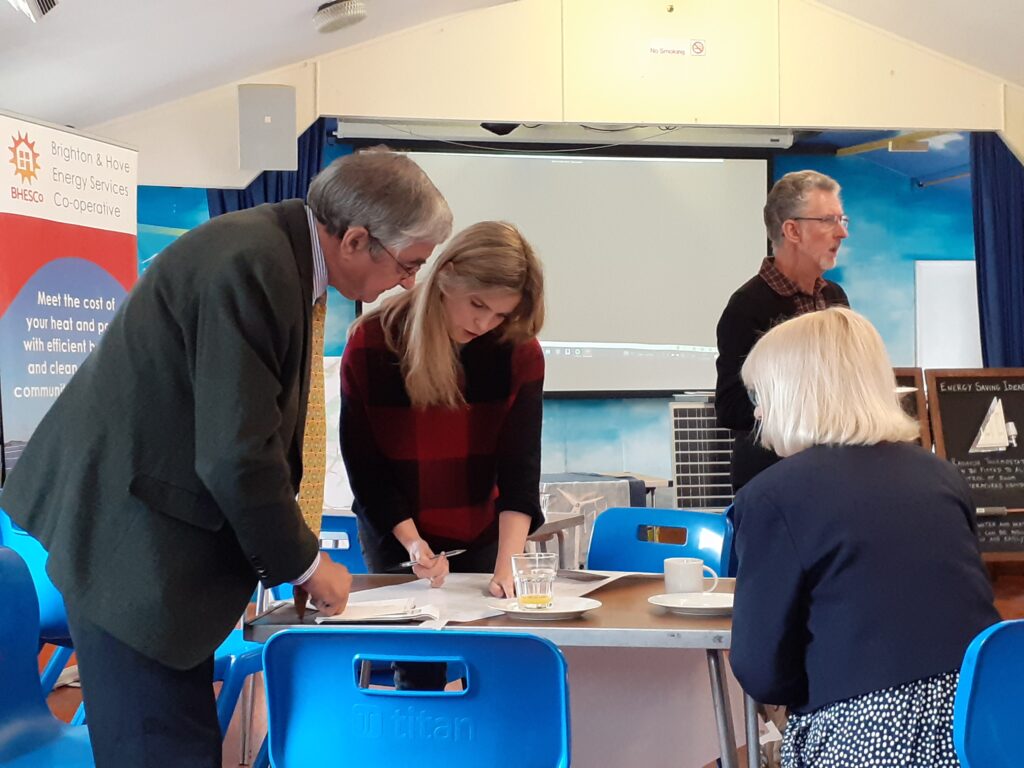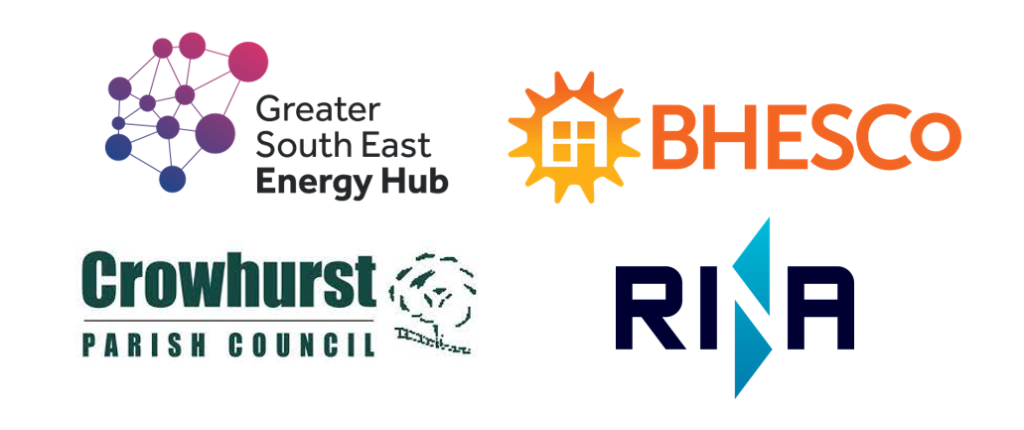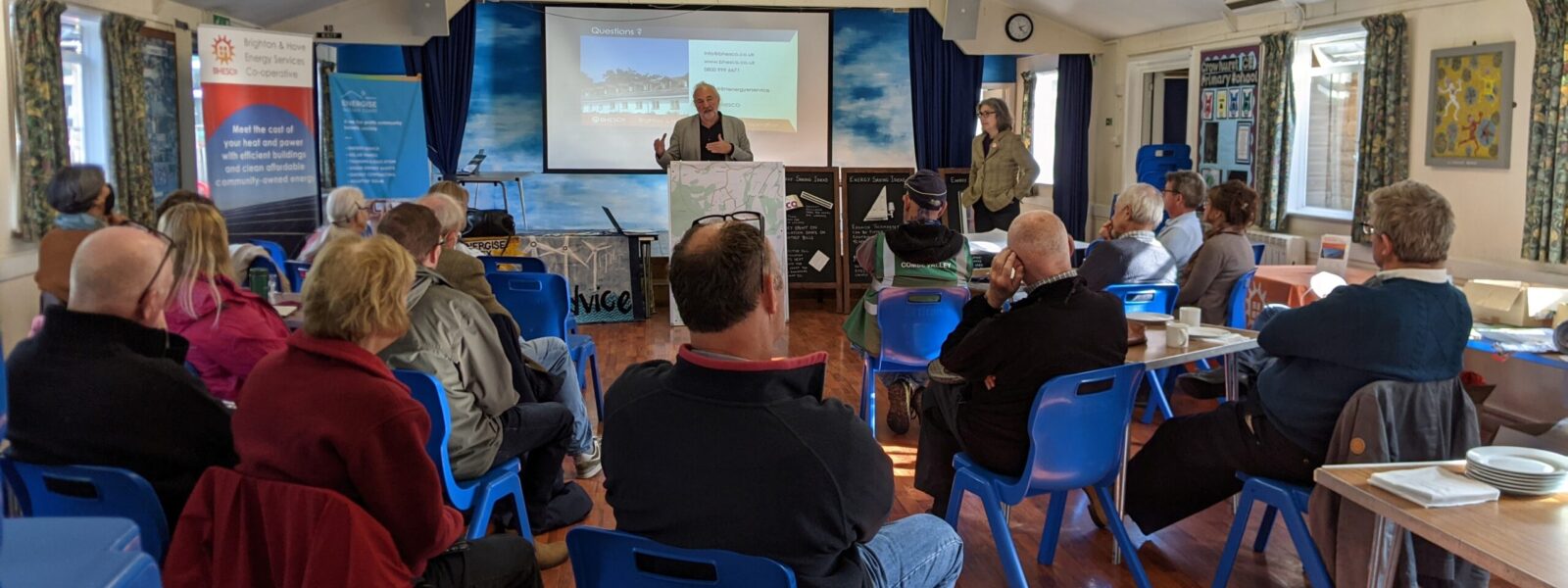WHAT IS THE PROJECT ABOUT?
The project is looking at housing in relation to energy use and the climate crisis at a local level, to suggest practical changes to the way homes are heated and powered. Crowhurst is one of the many villages in Rother that are off the gas supply and heavily reliant on oil for central heating, which will soon need to be replaced. In addition, the village is a microcosm of the rest of the country in that it has some of the most energy inefficient housing in Europe, with 13% of homes trapped in fuel poverty. The project is also very mindful that the current spike in energy prices, as we head into winter, will make it even harder for many homes to keep warm.
The Government has committed to reduce carbon dioxide emissions by 78% by 2035 although many experts say we need to do this even faster. The project will analyse how much energy Crowhurst is currently using and explore ways in which the village can reduce its energy demand and switch to cleaner and more affordable alternatives earlier than this date and in line with the villages’ ambitions to be carbon neutral by 2030 .
WHAT WILL THE PROJECT ACTUALLY DO
The project is funded by a Rural Community Energy Fund from Government. The grant will cover the costs of collecting data on energy use and housing condition from as many residents and businesses in Crowhurst as possible. Using this data, the consultants engaged by the project will create an energy plan for the village and provide a range of technical options for reducing energy use in homes and businesses plus the generation of local renewable energy.
The main focus will be on in-home heating to counteract the current reliance on oil. Technologies such as air source and ground source heat pumps will feature strongly. The feasibility study will also cover the outcomes if many residents switch to electric vehicles, electric heating and solar energy generation. This may have an impact on the local grid capacity and measures may have to be taken to balance the grid in future.
The key actions of the project are to distribute a questionnaire to all resident and to complete a heat survey of up to 50 homes at no cost to residents. To date, all 50 heat surveys have been completed and almost 100 questionnaires have been returned. This combination of activities should give sufficient high-quality data to generate a robust plan for the village to transition to a low carbon future.
Early indications are that 19 potential heat networks covering up to 190 homes will be possible, and these are now being assessed for their technical and economic viability. Work also progresses on identifying potential sites for community solar generation that would have the capacity to supply all of the village’s electricity demand.
Throughout the project, residents concerned about rising prices will be supported by Energise Sussex Coast and partner HARC, with help on offer in a number of ways to access grants, benefits, vouchers and reduce bills.

WHAT WILL HAPPEN NEXT?
The data collection and feasibility study part of the project will take around 3 months and the report will be available by 22 January. However, both during and after the project, Crowhurst residents will be able to access other supporting services such as the East Sussex Warm Home check provided by Retrofit Works, the LAD 2 home improvement scheme funded by local authorities and the South East Energy Hub. These services may be able to offer fully funded retrofits of homes for those who are in fuel poverty or eligible due to other vulnerabilities. Energise Sussex Coast are also working with energy provider EON who may be able to provide insulation and heat pump systems to clusters of vulnerable homes under the ECO3 and new ECO4 energy company obligation.
The project aims to submit a second application in February for Stage 2 RCEF funding which would enable the Parish Council to tender for the construction of heat networks and solar generation and cover the cost of any legal, planning and public consultation fees in doing so.
Contact details
Crowhurst Climate and Ecological Emergency Working Group
(A Crowhurst Parish Council working group made up of councillors, residents and those of relevant expertise)
Sonia Plato – howleyplato@gmail.com
Rosalyn Day – ros.day2@gmail.com
Energise Sussex Coast
Richard Watson – richard@energisesussexcoast.co.uk
Kate Meakin – kate@energisesussexcoast.co.uk
Brighton and Hove Energy Services Co-operative
Kayla Ente – kayla@bhesco.co.uk
Roland Baldock – roland@bhesco.co.uk

